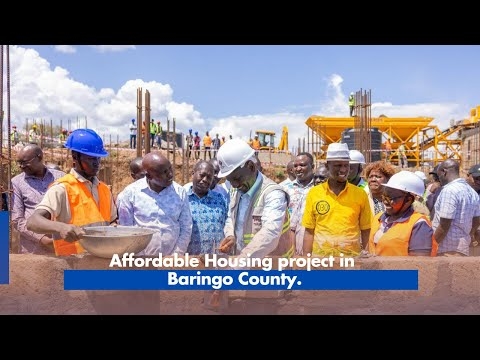Has there ever been such an intense flurry of accusations and counter-accusations following a Kenyan presidential election?
Or so much doubt raised over the outcome of an election?
Amidst all the confusion and exaggerated claims from both sides of the political divide, I seem to hear one question repeated: What does it all mean?
Well, I shall try and answer this question. And in doing so, I shall focus on just three key issues.
The first is that our democracy is working.
Consider all that frustration and bitterness, as the supporters of Deputy President (and now President-elect) William Ruto ask why their political rivals cannot accept that their candidate won fair and square, albeit by a very narrow margin.
And then consider the partisans of former Prime Minister Raila Odinga – taking a diametrically opposed view – absolutely adamant in insisting that a brazen theft of their candidate’s victory cannot be allowed to stand.
All that frustration and bitterness – and no politically instigated violence to speak of. Just a patient awaiting of the Supreme Court’s verdict in a few days’ time.
Which brings me to the second point. And this is that a masterstroke of the 2010 Constitution was the creation of the Supreme Court to serve as a safety valve when presidential election results are contested (as they have invariably been ever since the Supreme Court was created).
Those crucial 14 days between the proclamation of the president-elect by the IEBC and the final decision on the matter by the Supreme Court give us all time to calm down.
And above all to accept, on the one hand (for Raila’s supporters) that maybe the next five years will require that they acknowledge the rule of a president they did not vote for. Or on the other hand (for Ruto’s supporters) that they celebrated too early, and maybe they will have to go back to the polls if they hope to get their candidate into State House.
If previous Supreme Court decisions are anything to go by, whatever the decision this time may be, it will infuriate roughly 50 per cent of the voting population, and lead to delirious celebration by the other roughly 50 per cent.
But thanks to this critical cooling-off period, it is unlikely that there will be any sustained violence following the Supreme Court verdict.
And this brings me to my third point: it really is high time we do away with the presidential system altogether and return to the Westminster parliamentary system.
Just think about it: if we had indeed had all these other seats contested, but there was already in place a largely ceremonial president (as would be the case in India and Germany, for example) would there be any of this fuss and tension right now? Would we have armies of lawyers facing off at the Supreme Court?
What should have been clear from the experience of the US in the 2016 presidential election that was won by Donald Trump, is that it is possible to distort an election outcome if you have effective hackers working for you. As reported by Time Magazine,
“Over the course of the [2016] election, a wide-ranging group of Russians probed state voter databases for insecurities; hacked the Hillary Clinton campaign…released politically damaging information on the internet; spread propaganda on Twitter, Facebook, YouTube and Instagram…The goal, as determined by the U.S. intelligence community…: [was] To damage the Clinton campaign, boost Trump’s chances and sow distrust in American democracy overall.”
All this suggests that we cannot hope to escape the attention of such hackers in future presidential elections either. The temptation to resort to such methods – in a country like ours where political divisions tend to run very deep during elections – is simply too great.
And some of those who have bet their political fortunes on the victory of their preferred presidential candidate may even arrange for such illegal hacking without bothering to inform the candidate.
The way out of this quagmire is to let the plebiscites only go as high as the governor and the senator of every county.
And to then let a Prime Minister emerge from a parliamentary majority – as happens with the Westminster system.
“WATCH: The latest videos from the Star”











